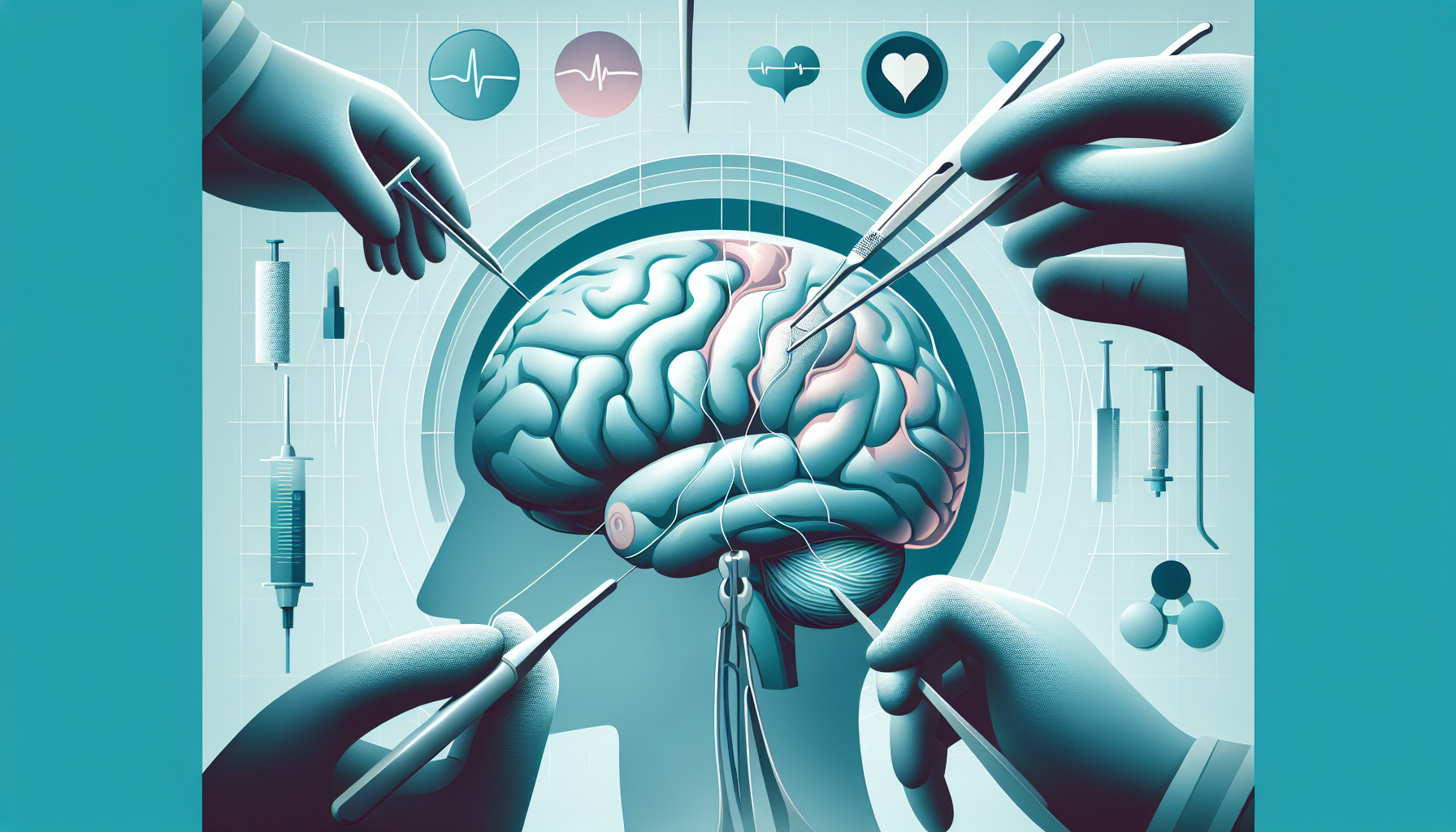Our Summary
This research paper is a detailed examination of how frailty, or physical weakness, can impact the outcomes of patients who have undergone craniotomy surgery - a procedure in which a part of the skull is removed to access the brain. The researchers reviewed multiple studies and the medical records of over 63,000 patients to determine if frail patients faced more complications post-surgery than their healthier counterparts.
Their findings suggest that frail patients are twice as likely to experience complications following the surgery. Additionally, these patients were more likely to be discharged to a location other than home, had longer hospital stays, and had a higher mortality rate.
The researchers concluded that a patient’s frailty should be considered as an important factor while assessing the potential risks of craniotomy surgery. This could help improve the overall quality of care for these patients.
FAQs
- What is the focus of this research paper about craniotomy surgery?
- How does frailty impact the outcomes of patients who have undergone craniotomy surgery?
- How could considering a patient’s frailty potentially improve the quality of care for patients undergoing craniotomy surgery?
Doctor’s Tip
One helpful tip a doctor might tell a patient about craniotomy is to focus on improving their overall physical health and strength before undergoing the surgery. This could involve regular exercise, a healthy diet, and managing any chronic medical conditions. Strengthening the body can help reduce the risk of complications and improve recovery outcomes post-surgery. Additionally, following post-operative care instructions and attending follow-up appointments with healthcare providers are crucial for a successful recovery.
Suitable For
Patients who are typically recommended for craniotomy surgery include those with brain tumors, aneurysms, arteriovenous malformations, traumatic brain injuries, epilepsy, and other neurological conditions that require surgical intervention. These patients may have symptoms such as seizures, headaches, weakness, numbness, difficulty speaking or understanding language, vision problems, or changes in behavior or cognition.
It is important for healthcare providers to carefully evaluate each patient’s individual medical history, overall health status, and the specific condition that requires surgery before recommending a craniotomy. Patients who are deemed to be at high risk for complications due to factors such as advanced age, underlying medical conditions, or frailty may require additional preoperative evaluations and interventions to optimize their outcomes.
Timeline
Before craniotomy:
- Patient undergoes pre-operative evaluation and testing to assess their overall health and suitability for surgery.
- Patient may need to stop certain medications or make lifestyle changes leading up to the surgery.
- Patient meets with the surgical team to discuss the procedure, risks, and potential outcomes.
- Patient may undergo additional imaging tests to plan the surgery.
- Patient may need to fast before the surgery.
After craniotomy:
- Patient wakes up in the recovery room and is monitored closely for any complications.
- Patient may experience headaches, nausea, or confusion in the immediate post-operative period.
- Patient may need to stay in the hospital for several days for monitoring and recovery.
- Patient may need physical therapy or rehabilitation to regain strength and function.
- Patient may need regular follow-up appointments with their surgical team to monitor their progress and address any concerns.
What to Ask Your Doctor
What are the potential risks and complications associated with craniotomy surgery for someone in my current health condition?
How will my frailty impact the outcomes of the surgery and my recovery process?
Are there any specific preoperative measures I should take to optimize my health and reduce the risks associated with the surgery?
What postoperative care and support will be provided to help me recover from the surgery, especially considering my frailty?
How will my frailty affect the length of my hospital stay and the likelihood of being discharged to a location other than home?
Will my frailty impact the success of the surgery itself and the long-term outcomes of the procedure?
Are there any additional resources or support services available to help me cope with the challenges of undergoing craniotomy surgery as a frail patient?
What steps can I take to improve my overall health and physical strength before and after the surgery to enhance my recovery process?
Reference
Authors: Licina A, Silvers A, Thien C. Journal: Syst Rev. 2024 Feb 23;13(1):73. doi: 10.1186/s13643-024-02479-3. PMID: 38396006
